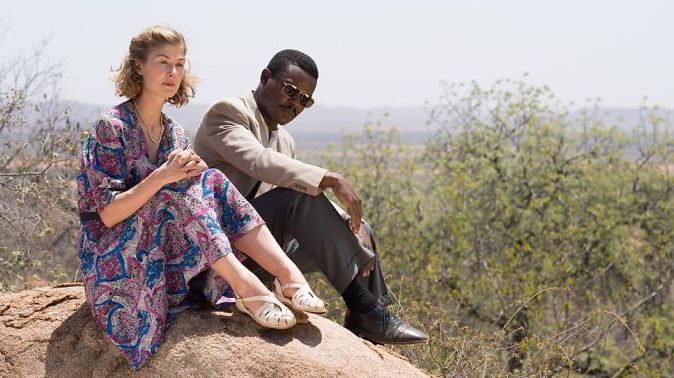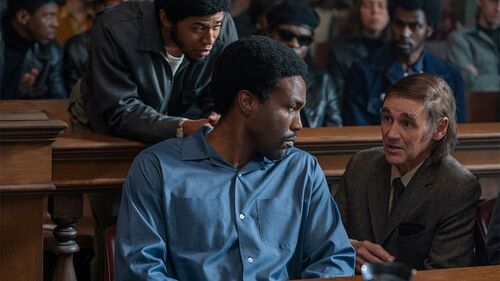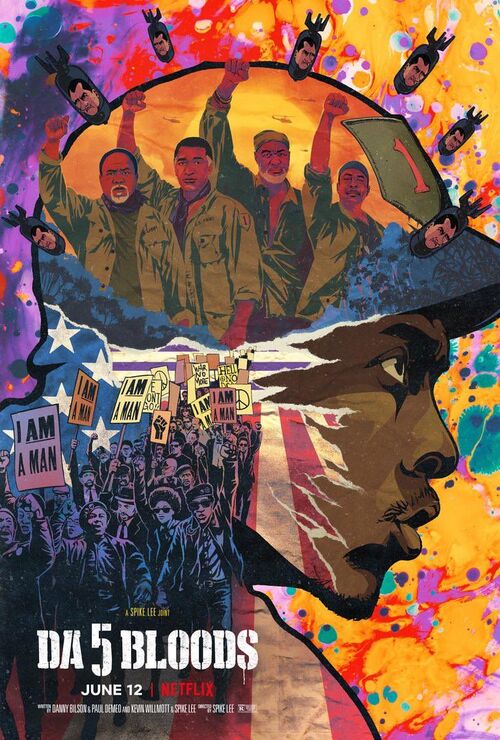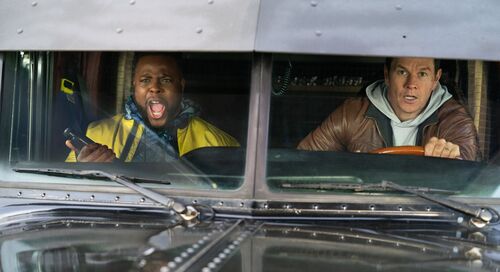
A United Kingdom
 What would happen if I brought a white woman home and said; Mama, she’s the one. It'll be fine I guess. There would be some eyebrows raised, with increasing murmurs the further you got from nuclear family, but it'll be fine. However, when it becomes a matter of general scrutiny; the optics of a chief or presidential candidate with a white better half, folks would not be having it. So the idea of a mixed race couple with a royal half in the pre-colonial Africa is scandalously daunting, to put it lightly.
What would happen if I brought a white woman home and said; Mama, she’s the one. It'll be fine I guess. There would be some eyebrows raised, with increasing murmurs the further you got from nuclear family, but it'll be fine. However, when it becomes a matter of general scrutiny; the optics of a chief or presidential candidate with a white better half, folks would not be having it. So the idea of a mixed race couple with a royal half in the pre-colonial Africa is scandalously daunting, to put it lightly.
You wouldn’t think it after watching Amma Asante’s A United Kingdom which simplifies-ish the consequences of the mixed-race love and marriage between Seretse Khama (David Oyelowo), prince of Bechuanaland ( Specifically the Bangwatoand later President of Botswana), and British civil servant Ruth Williams (Rosamund Pike). I say simplify-ish because the film appears to be aware of the complexities of the time – ranging from your regular racism to the apartheid occupation. Then there are the complexities of colonial politics and the cultural dynamic in Bechuanaland, which was then a British Protectorate.
Asante seems to tip-toe her way through these dynamics with some ease and the temptations remains to call it watered down account of the travails of the first First Family of Botswana but there is some merit to an entertaining history bleb though I think back to Asante’s previous feature, Belle and note that there was something more incisive and nuanced about the way it tackled race, with the mixed race component rearing its head. Maybe the fact I was a reasonably aware of this aspect of Botswana history made it hard to appreciate. I spent a chunk of my childhood in Botswana so the country does have a special place in my heart.
Pike’s Ruth finds a place in Seretse’s heart pretty quickly after they meet at a Christian gathering in London. Oyelowo's Seretse seems to be channelling an amalgamation of MLK in Selma and Robert Katende in The Queen of Katwe and the charisma oozes out as he preaches liberation and African unity when their eyes meet amidst the smooth jazz in the ambience. Before we know it, they burnt of racists slurs in the streets and Ruth’s father is disowning her for deciding to marry a man from Africa after Seretse proposes to her one night, with the Big Ben glowing in the distance of course. This proposal ruffles a lot of feathers within the British government and it steps in to outline why this marriage is a no no; something to do with the message a Motswana king with a white queen would send to a South Africa gearing up for some of the vilest moments in human history.
The politics remains, murky and with the Cold War on the horizon, losing out on uranium would be too much to bear for Britain if they were seen to be undermining South Africa by endorsing the innocuous mixed race royal couple next door. The politics should be the most fascinating part of this story but it generally takes a back seat to the expediency crafting of glossy briskly paced romantic drama. From the bits about the real world dynamic of the time I am aware of, it was essentially a liberation issue for Seretse and Botswana because, the nation may not have been a colony, but as a protectorate, it was pretty damn close and the British still had a major say in their affairs.
After chewing on Ousmane Semebene’s resistance themed works in recent times, I was inclined to dismiss Asante’s approach. I tend to favour of a sense of urgency and a degree of transcendence with the themes because when it comes to Africa’s dealings with foreign powers, I expect some more bite because the chains are still firmly on. But Botswana has played a relatively good hand, on the spectrum of other sub-Saharan African countries; with the good management of their wealth and all. The southern African country didn’t have to endure decades of oppressive racial turmoil neither did it have to swim against the nasty torrential waters of post colonisation.
A United Kingdom sees Seretse exhibit some awareness of Britain’s desire to really sink its claws in Bechuanaland, especially with diamonds in the offing. He eventually renounces his royalty in favour of democracy and the subsequent shedding of protectorate status. This point brings to mind another simple idea woven into stories with pre and post-colonial settings – compromise. Consider the idea of an African king doing away with a part of tradition to go in for a white bride, the idea of the African community that has a referendum on their king and then Seretse ultimately dangling the idea of doing away with centuries of tradition in favour of the white man’s democracy.
The idea of compromise has been ingrained in some iconic African stories, Of the ones I've read, I think of the Chinua Achebe double header of Things Fall Apart and No Longer at Ease, which attacks this idea from different angles. This idea works well when there is a noble force opposing the compromise and we get some measure of this in Seretse’s steely uncle Tshekedi (Vusi Kunene), who has been acting as regent and was not happy when his boy brought a white girl home. His wife (Abena Ayivor) appears to be even more livid by the apparent insult of Ruth being the queen of black people. But it’s all by the by. Asante doesn’t commit to the tension, which is neatly resolved and Ruth embraced as a woman of the people in no time.
A United Kingdom tries to keep the romance between Seretse and Ruth front and centre, even when the couple is eventually separated and toyed with by the Britsh government. The film doesn't do enough to milk enough out of the varied settings presented. Botswana is bare and scorching hot for Ruth and that's that. Seretse sits in grey rainy London pouting. But the juxtaposition seems to end there as the separation into foreign lands is not properly explored.
The drive towards the light-hearted finale is apparent. Love will conquer all and Asante's approach here works fine if romance woven into a history lesson is what you desire. She spoke of the being attracted to Seretse's tenacity to hang on to a white wife in the name of love and integrity and there some charm to that.
A United Kingdom is well acted and well paced but lacks that fascinating element, that edge that warrants multiple viewings like, say, a Belle.
-
By: Delali Adogla-Bessa/delalibessa@yahoo.com


